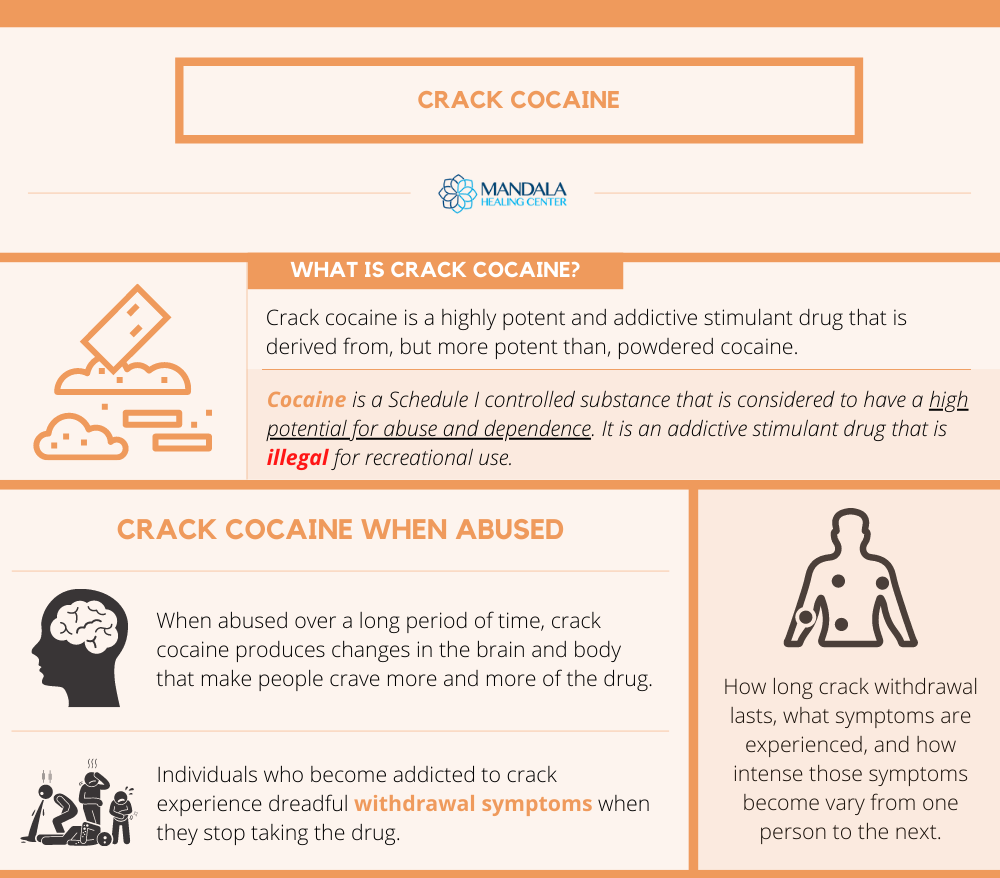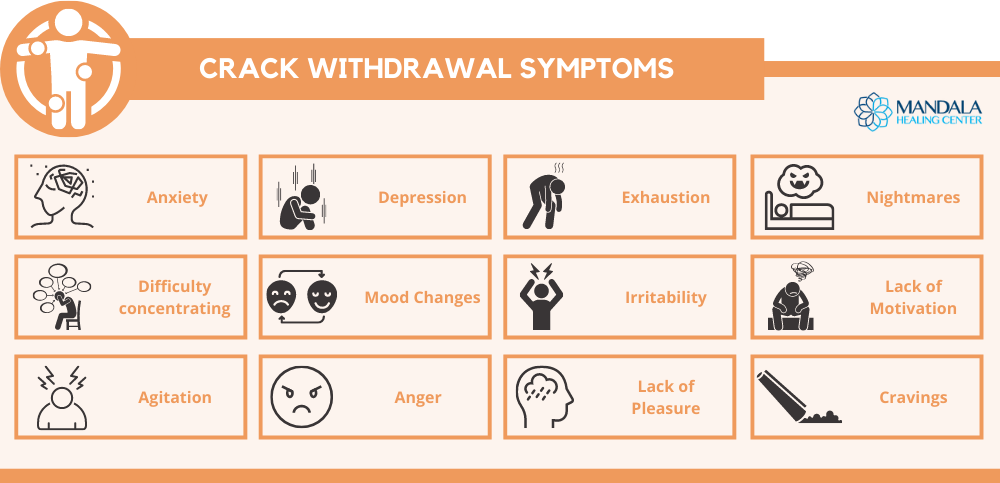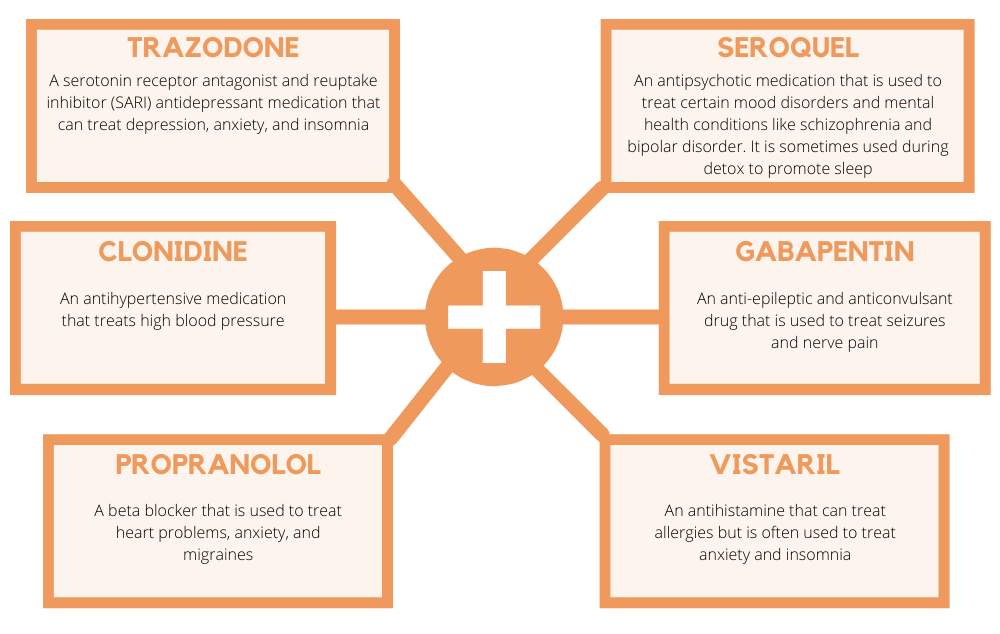Quitting any drug is never easy, but the rewards of living a sober life make the challenge well worth it. When it comes to crack cocaine, getting sober can feel like a constant fight against one’s psyche. Crack cocaine is a powerful, mood and mind-altering drug that causes obsession of the mind and dependence of the body. It is one of the most addictive drugs out there, but a comprehensive crack cocaine addiction treatment program in West Palm Beach can help.
What is Crack Cocaine?
Crack cocaine is a powerful and highly addictive stimulant drug. It is derived from powdered cocaine by mixing powdered cocaine with water and ammonia or baking soda (sodium bicarbonate). This mixture is boiled until a solid forms at the bottom. This solid is extracted, dried, and broken into chunks or “rocks” which are then sold as crack.[1]
Street names for crack cocaine include:
- Candy
- Crumbs
- Devil Drug
- Gravel
- Hardball
- Hard rock
- Ice cube
- Rocks
- Sleet
- Snow coke
- Hail
Crack cocaine is a Schedule II controlled substance indicating no medicinal use and a substantial risk for abuse and dependence.[1]
Signs of Crack Cocaine Abuse and Dependence
Crack cocaine is an extremely dangerous drug. It is broken down into small rocks and smoked out of a pipe or added to the tip of a cigarette. Some individuals inject the substance. Regardless of how it is abused, individuals who abuse the drug will become addicted over time.
Studies show that crack cocaine users are at a higher risk for reporting arrests, low socioeconomic status, and lower education compared to powdered cocaine users.[2] These factors can perpetuate a dangerous cycle of addiction.
Signs of crack cocaine abuse and dependence include:
- Dilated pupils
- High body temperature and increased perspiration
- Increased energy and anxiety
- Developing a tolerance on crack
- Experiencing withdrawal symptoms when the effects of crack wear off
- Drug cravings
- Loss of interest in hobbies, responsibilities, and prior interests
- Neglecting one’s responsibilities
- Troubles at work, home, or school
- Wanting to stop or trying to stop using crack but being unable to do so
- Financial or legal troubles
- Isolating oneself from friends and family members
Getting proper treatment for crack cocaine addiction is vital. Left untreated, addiction can have devastating and fatal consequences.
Treatment for Crack Cocaine Addiction
According to the National Institute on Drug Abuse (NIDA), cocaine was responsible for nearly 6% of all substance abuse treatment admissions. 68% of individuals who are admitted to treatment for cocaine are addicted to crack cocaine and are likely to be using more than one substance.[3] While there are currently no medications approved for the treatment of crack cocaine abuse and addiction, traditional behavioral approaches and lifestyle changes can help individuals lead a life of sobriety.
Medical Detox
The first step of any drug treatment program is medical detox. This is when patients detox from substances and go through drug withdrawal. Symptoms of crack withdrawal are mostly psychological and can be managed with anti-anxiety medications. Crack withdrawal symptoms include:
- Anxiety
- Depression
- Exhaustion
- Nightmares
- Difficulty concentrating
- Mood changes
- Irritability
- Lack of motivation
- Agitation
- Anger
- Lack of pleasure
- Cravings
These symptoms peak around 72 hours and can last for several weeks. People who are detoxing from crack cocaine may be given any of the following medications to help alleviate their symptoms.
- Clonidine
- Gabapentin
- Trazodone
- Seroquel
- Propranolol
- Vistaril
Since people must quit crack cocaine cold turkey, it is important they go through detox under close medical supervision. Doctors and nurses remain on-site throughout a patient’s time in detox to monitor their vitals and symptoms.
Behavioral Therapy
After detox, people in crack cocaine addiction treatment may attend inpatient and/or outpatient rehab. During this time, individuals participate in a range of behavioral therapies, group counseling sessions, and individual therapy.
One type of behavioral therapy that has shown positive results in treating cocaine addiction is contingency management (CM). CM is a prize or voucher-based system that rewards individuals who maintain their sobriety. Patients may also be incentivized for good decision making and positive life-skills development. This approach can help individuals stay sober and remain in treatment for the full duration of their care.
Other tactics used to treat crack cocaine abuse and addiction include:[4]
- Cognitive-behavioral therapy (CBT)
- Therapeutic communities
- Family and couples counseling
- Life skills training
- Relapse prevention therapy (RPT)
Aftercare and Peer Support
Addiction recovery is a journey that does not end with the completion of a treatment program. Recovery continues after rehab by means of aftercare support programs.
When it comes to follow-up treatment for crack cocaine addiction, community-based programs like Cocaine Anonymous (CA) and other 12-Step groups can be extremely beneficial. This is because individuals have the opportunity to connect with other like-minded individuals over common problems and experiences.[3] Other forms of aftercare that can help keep a person in recovery include:
- Sober living homes
- Telephone-based counseling
- Recovery-based support groups
- Alumni programs
Find Treatment for Crack Cocaine Addiction in West Palm Beach Today
Here at Mandala Healing Center, our holistic approach aims to help patients heal their mind, body, and spirit after addiction. Using an individualized approach and evidence-based therapies, we can help you or a loved one overcome crack addiction.
To learn more about your options for crack cocaine addiction treatment in West Palm Beach, give us a call today. An admissions coordinator is standing by to help.
References:















